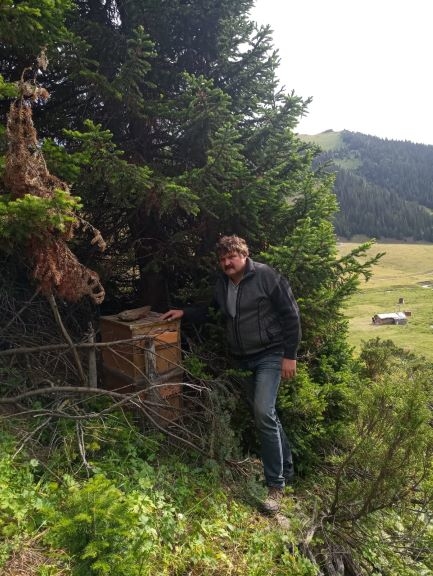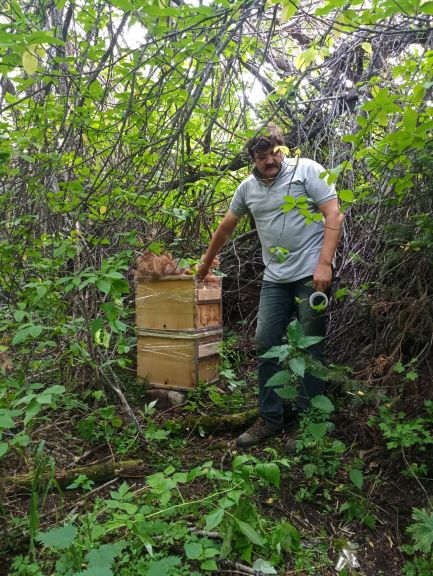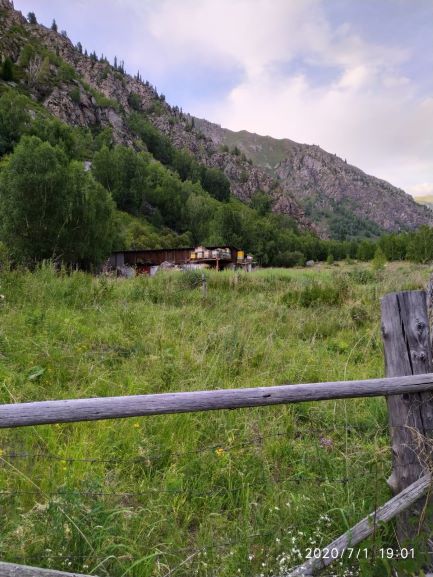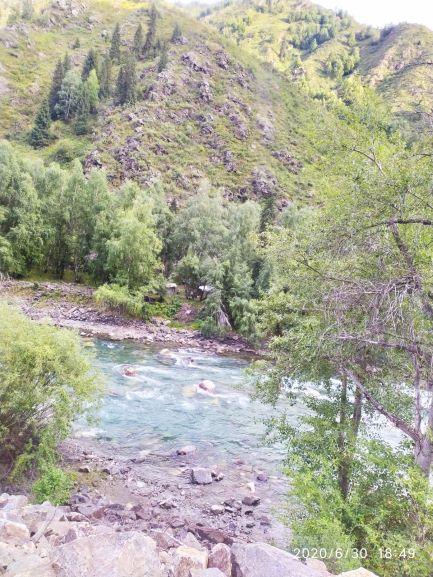
At the “Kazakh Research Institute of Livestock and Feed Production” LLP established a beekeeping department. Beekeeping plays an important role in ensuring food security of the country and preserving biological diversity, in addition, it has huge export potential due to the production of valuable biologically active beehive products. But honey bees make the largest and most concrete contribution to increasing yields and a high level of quality of agricultural products produced due to pollination of entomophilous plants, vegetable and berry plantations, orchards, fodder and industrial crops.
For many years in this area little attention has been paid to serious scientific work, there is no available information about studies already completed and their implementation in practice. It is obvious that the beekeeping industry needs large-scale scientific research, which should fully meet the needs of economic entities of agribusiness.

The issue of creating a specialized department for conducting research and development work (R&D) in beekeeping has been discussed for a long time and at different levels. The justification of the need to create a department on the basis of the Kazakh Research Institute of Livestock and Feed Production was presented to the Ministry of Agriculture in July 2019, and in February 2020, the Institute’s Academic Council decided to create the Beekeeping department. Employees began to develop promising topics - Scientific and technical programs for 2021 – 2023 on effective technologies in beekeeping, breeding.
On July 13, 2020, the second expedition of scientists to remote areas of the Almaty region have been completed, where non-fertile queen bees from purebred ancestors were placed, scientists hope to get a father’s dark forest line. Thanks to the patience and diligence of local beekeepers, a population of dark forest bees is preserved in Kazakhstan. A bee is up to 7 months a year in apiary house. The swarming time has just begun.
Scientists of “Kazakh Research Institute of Livestock and Feed Production” LLP express gratitude to the local executive authority and personally to the Akim of Almaty region for their support in carrying out the work and hope that together we will preserve and cultivate the local dark bee population. The main enemy of the high-altitude apiaries of Zailiysky Alatau neither a tick nor damage by animals, but a bear.
“Kazakh Research Institute of Livestock and Feed Production” LLP has possibility to conduct morphometric and genetic diagnostics of local bee populations for further breeding.

The main activities of the beekeeping department – to develop and implement effective technologies for breeding, keeping, feeding and caring for bee families of honey bees; organization of specialized veterinary services for the treatment and prevention of diseases. Development and production of medicines and preparations that do not violate the ecology of the bee family.
In the field of pollination, promote the role of honey bees in the pollination of entomophilous crops. To develop a regulatory framework for the rational use of bee colonies, to introduce an expanded range of services for pollination of entomophilous crops, orchards, vegetable and berry plantations.

In the field of breeding of honey bees - a study of the gene pool of local bee populations, taking into account such indicators as winter hardiness, high productivity, and uterine fertility. By region - breeding of highly productive and adapted to the climatic conditions populations of honey bees.
Reconstruction and approval of the plan for pedigree zoning of honeybees according to the main beekeeping zones of the Republic of Kazakhstan, development of methods for determining the species of bees based on genetic analysis. The use of innovative computer programs for front wing morphometry - MORFO XL, etc.
Studying the capabilities of the honey base and mapping of honey lands, beekeeping zones of Kazakhstan, based on them, the development of optimal nomadic routes, taking into account vertical zoning, climatic conditions, environmental conditions and the form of ownership of the territories of honey lands.
To develop technologies for the deep processing of the entire list of beehive products for the needs of the food industry, veterinary and medicine.



